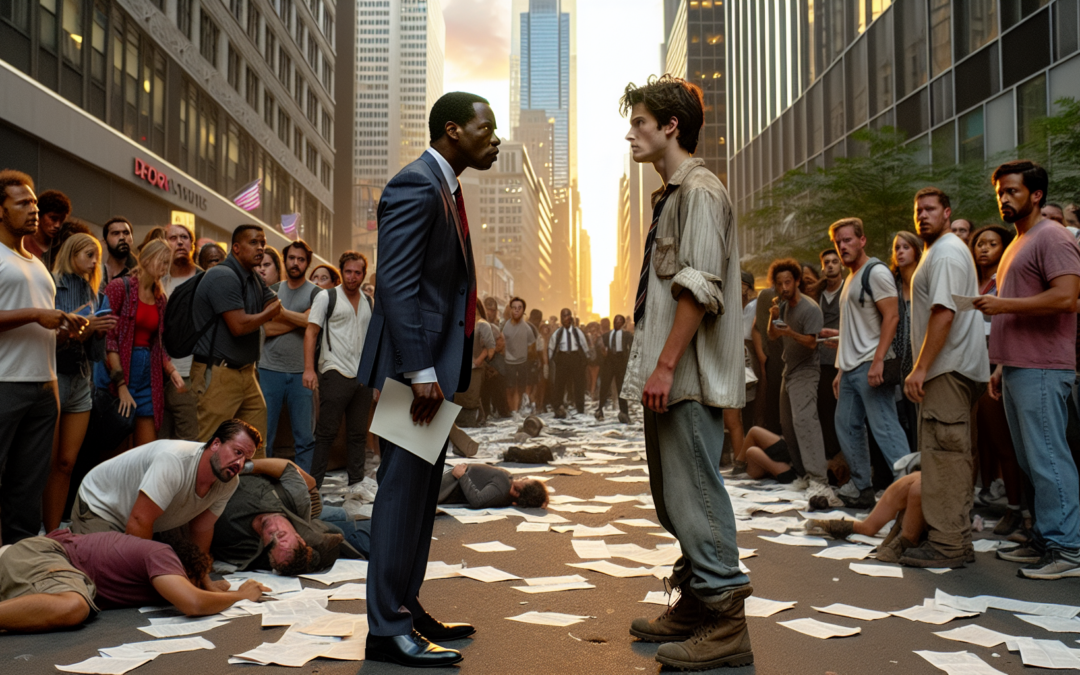Navigating the First Amendment Maze: A Law Enforcement Odyssey
In the vast array of law enforcement duties, few challenges cut closer to the core of democratic function than the handling of First Amendment audits. Embedded within this role is a delicate balance of protection and oversight, where officers must safeguard public safety while respecting the cherished liberties outlined in the Constitution. Enter the complex narrative of Sgt. Angelo Rodriguez, who confronts these so-called auditors with resilience and integrity.
The Uphill Task of Justice
For those in uniform, every interaction becomes a stitch in the intricate tapestry of public trust. Under the beam of public scrutiny, officers like Rodriguez must navigate the precarious balance between maintaining order and enduring the critique of dissenters who brand themselves as First Amendment champions. The tension is palpable, as every decision holds the weight of potential reproach or accolades not just from those they serve, but in the wide-reaching corridors of social media.
Sgt. Rodriguez’s commitments are tossed into sharp relief when dealing with figures like Dandy Danny, who often toe the line between civil liberty advocacy and public disruption. These interactions aren’t merely momentary inconveniences; rather, they pose significant operational challenges that command an officer’s poise, precision, and patience against a backdrop of increasingly viral sensationalism.
The Clash between Order and Audacity
Auditors, such as Dandy Danny, wield cameras as their weaponry, thrusting the officers into the glare of a digital audience that thrives on moments of controversy. As demonstrated in the unfolding narrative on John Ligato’s YouTube channel, Rodriguez finds himself navigating this tumultuous territory.
Shrouded not just in the physical barricade of their lenses but in the intent to expose perceived overreach, these self-declared auditors wield their perceived righteousness as fiercely as any sword. For Sgt. Rodriguez, every response is an opportunity—a chance to reaffirm professional decorum amidst provocation and an often unpredictable judicial playing field.
Resilience in Response
It is through the lens of such encounters that the resilience of officers is defined. Rodriguez’s experience with Danny was a stark reminder of the audacity layered within these engagements. First responders must remain steadfast, employing diplomacy where others would lean toward indignation. And so, under the klieg lights of scrutiny, Rodriguez conducts his enforcement duties with a resolve that turns potential volatility into a platform for dignity and justice.
Their story, chronicled with unprecedented transparency in a specific episode of the John Ligato Show, showcases how forthrightness in duty allows for an educational experience in governance for those watching. While Danny may aim for digital infamy, Rodriguez becomes an emblem of the calm strength that encapsulates those who police with passion and patience.
Unity in the Community
The struggle between First Amendment auditors and law enforcement doesn’t simply reside within their direct confrontations; it casts a long shadow over the community too. In cities across the nation, these intricate narratives spark vital questions regarding civil liberties and ethical policing. They bring community trust under the microscope—compelling both officers and civilians to engage in difficult conversations. These dialogues can foster either division or unity, depending not just on actions but on the tenor of mutual understanding and respect.
In the aftermath of Danny’s challenge, Sgt. Rodriguez offers an invitation to society at large: to witness not just the faults but the merits of lawful order; to appreciate the robust dialogue that sprightly challenges instigates, all encapsulated through candid exchanges on forums like John Ligato’s Facebook page.
The Path Forward
Navigating these contentious interactions demands reflecting thoughtfully on measures for systematic improvement, guided not by a reactionary hand but by policy grounded in fairness and respect for all sides. As auditors like Danny push boundaries, they inadvertently underscore the necessity for refined training, broader empathy, and enhanced transparency in law enforcement practices. The pathway toward meaningful accountability in policing is born of struggle and resolve—a testament to every bravely affronted trial.
In conclusion, the saga of Sgt. Rodriguez and his dealings with Dandy Danny underscores an unwavering truth: that the role of law enforcement is ever-transforming yet encased with opportunities for growth. These narratives become more than mere entries into police logs; they morph into living case studies that lend insight into the strengths and weaknesses of a system under the lens of scrutiny. Amidst the cacophony, officers like Rodriguez champion the virtues of America’s cornerstone rights and provide a clarion call for a community to rally not in opposition but in collective understanding—therein lies the true lawfulness of liberty.

Recent Comments